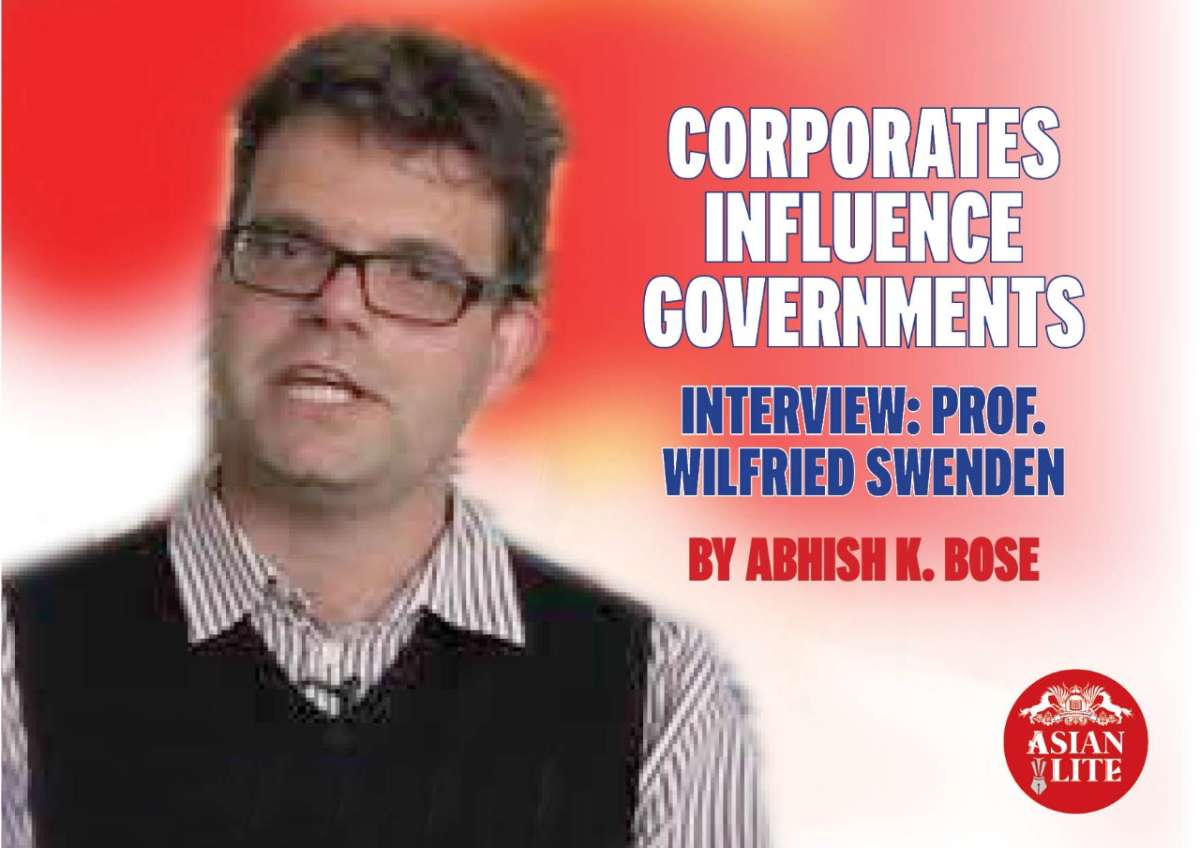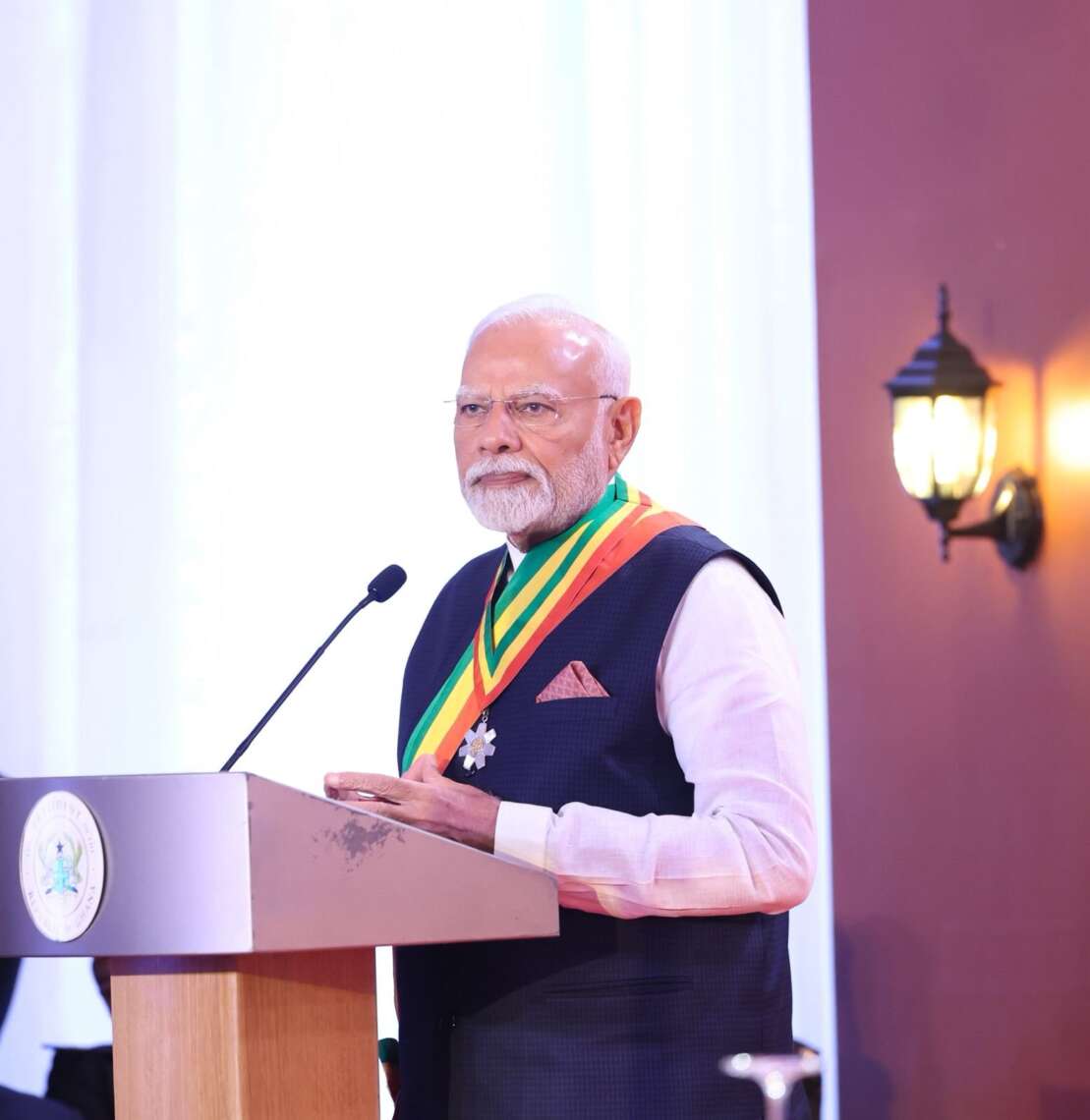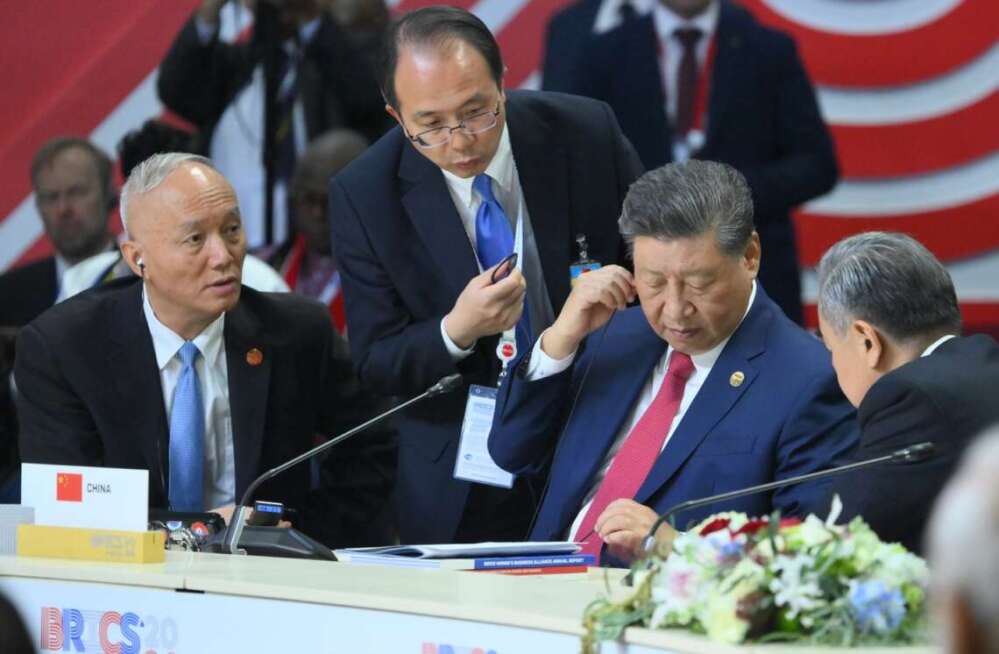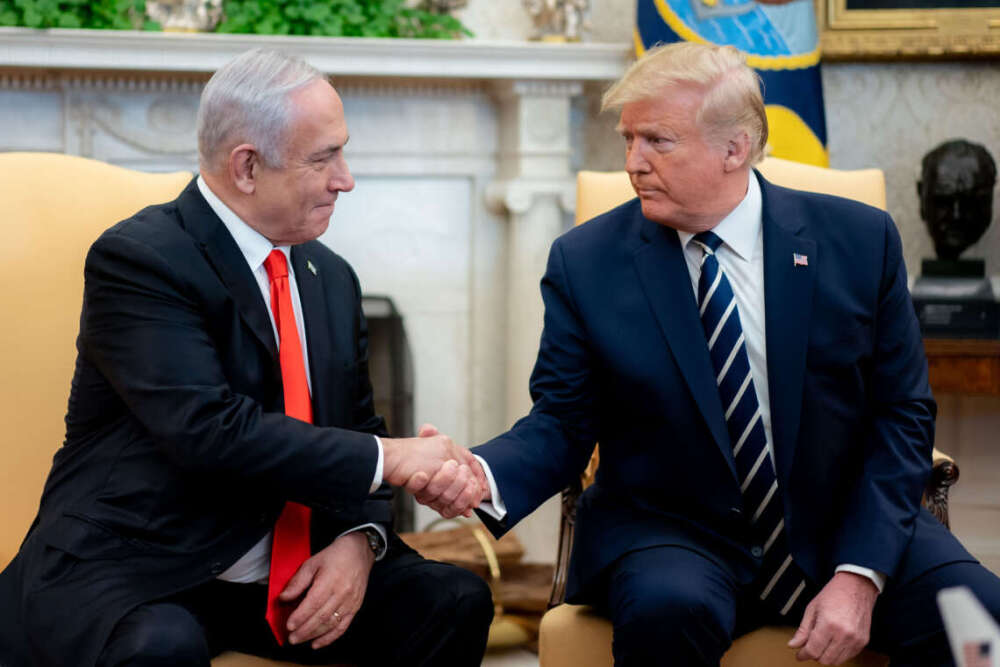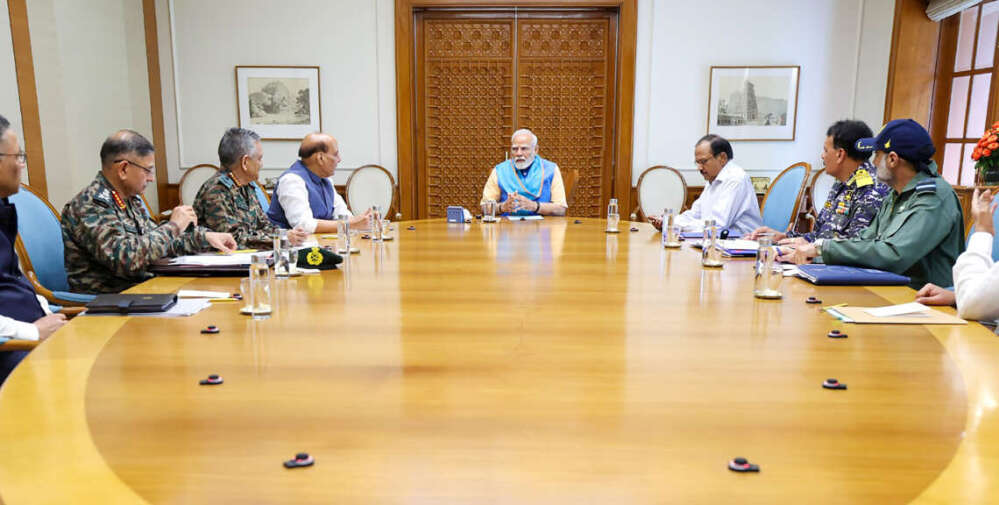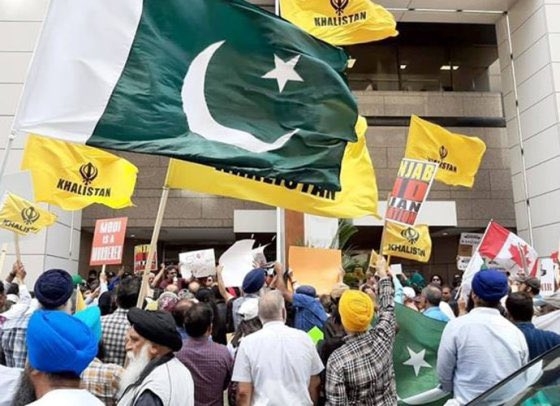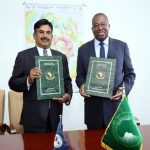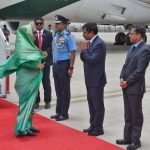Prof. Wilfried Swenden is Professor of South Asian and Comparative Politics and Deputy head of Politics and International Relations, School of Social and Political Science at the University of Edinburgh. He is internationally recognised for his studies in the realm of federalism and his research interests includes comparative federalism and territorial politics, intergovernmental relations in multi-level states and centre state relations in India and Indian party politics.
Prof. Wilfried, who hails from Belgium where he completed his D. Phil (University of Oxford) followed by a Post – Doctoral fellowship at Leuven, funded by the Flemish Fund of Scientific Research. Asian Lite’s Abhish K. Bose meets Prof. Wilfried
ABHISH K BOSE: What is your take on Indian federalism vis-a-vis American federalism?
PROF. WILFRIED SWENDEN: I would not say a priori that US federalism is stronger today than say a century ago (in fact with the expansion of the welfare state, the size and powers of the US centre have increased significantly). However, states have more secure powers under the US constitution which is very hard to amend. Citizens of the US also accept that state governments should have strong fiscal autonomy and no guarantee of a federal bail-out if they default on their fiscal responsibilities. In India, states lack that autonomy but that also makes them more vulnerable to federal incursions which are often open to political discretion (such as in the allocation of CSS to states aligned with the government policy and political preferences).
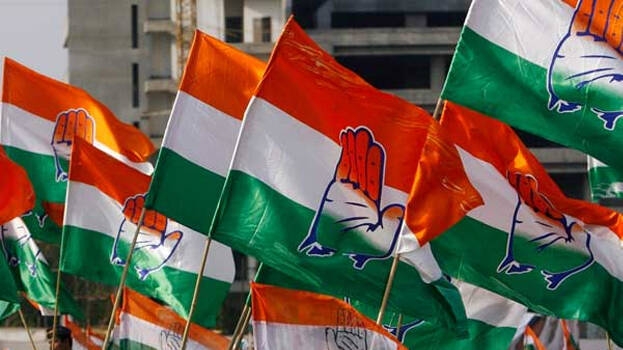
ABHISH K BOSE: Do you think that reinforcing political and cultural regionalism is the solution for this? Doesn’t this weaken the ‘oneness of spirit’ that a dynamic nation must cultivate?
PROF. WILFRIED SWENDEN: There can be no federalism without federal spirit. It is one thing for the BJP to say this, but this does not mean that it is true (e.g Canada is a performant federation despite the comparatively strong position of its provinces, or the US given the role of the states) or that voters will buy into this narrative. Only if they continue to vote BJP governments into federal and nearly of the states this may become closer to reality. Federations work on the basis of solidarity (the oneness of spirit you refer to) and autonomy. This autonomy entails that states and regions have the freedom to exercise autonomy within their domain and to vote for the parties and leaders of their choice. To impose unity on a society that is highly diverse on the basis of region, language, caste and religion is counter-productive and can in the long term generate support for secessionist movements or political violence. That being said, I have been somewhat surprised by the willingness of the Indian voters and even some of the regional parties to buy into the BJP narrative. Perhaps parties do so because they feel that their options are curtailed if they take a stance more clearly against the central government, but what compels voters to believe the same? Even before 2014, some surveys (LIKNITI, World Values Survey) show strong support in India for a strong national leader and rising support for a majoritarian understanding of democracy. Both of these sit uncomfortably with the federal spirit and certainly with the understanding of India as a liberal democracy in which the rights of minorities must be constitutionally protected.
ABHISH K BOSE: Do you see the federal structure of India is changing?
PROF. WILFRIED SWENDEN: There is definitely an erosion of the federal principle at play in India at the moment, even though in these circumstances it is useful to remind ourselves of the fact that given the size and diversity of India, there will remain room for state and local autonomy, particularly in fields which are in the exclusive state list and in which the current centre has shown limited interest to interfere. The presence of a minority government and/or coalition government until 2014 and for most of the time since 1989 provided an important political safeguard against the centralisation of the Indian polity, something which can be easily accomplished given the rather centralised features of the Indian constitution.
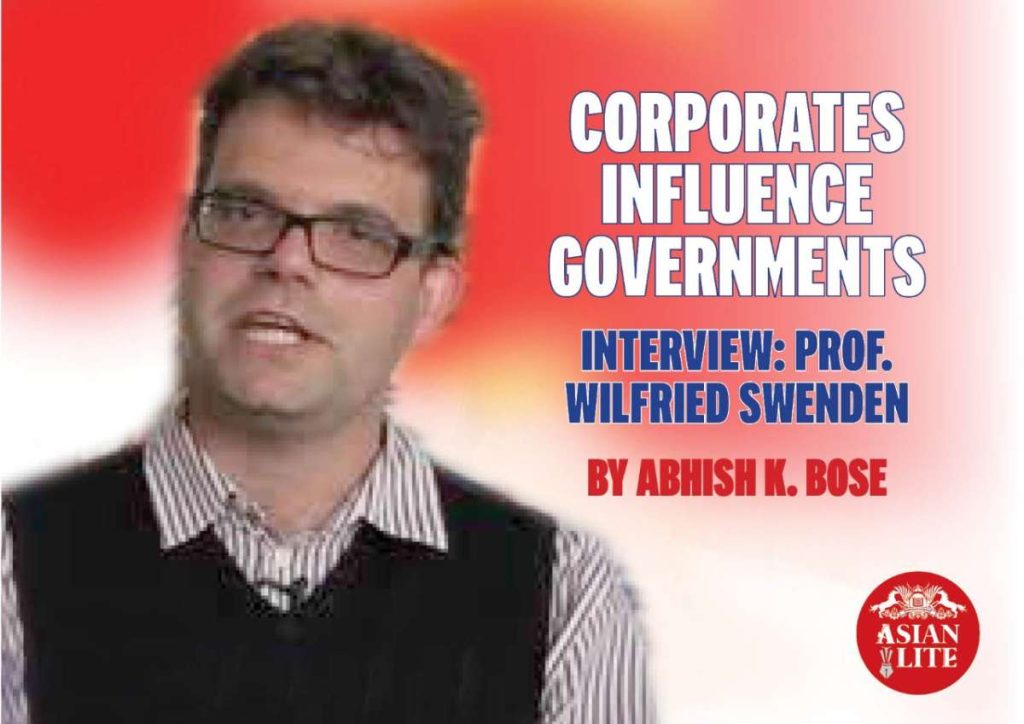
ABHISH K BOSE: Article 365 of the Indian Constitution is perceived to have harmful ramifications vis-a-vis its implementation. The Union government, under the Congress regime, first invoked this provision for dismissing the EMS-led, left government in 1959. This was followed by other such dismissals. Can this provision be retained without violating the spirit of federalism enshrined in the constitution? If yes, what are the further safeguards to be put in place?
PROF. WILFRIED SWENDEN: Although you are correct in your earlier assessment that the Supreme Court has not been an important safeguard of federalism since 2014, it has held on to its reading of President’s Rule since the Bommai judgement and in Modi’s first term in office struck down the unconstitutional application of public-relations, even forcing ousted Congress governments to be reinstated. Public relations may have a role to play, but only if it is used in the constitutionally intended way: when there is a breakdown of law and order at the state level or indeed where a government loses its majority in the assembly without a possible alternative. Arguably, India could move towards constitutionalizing a constructive motion of confidence as an instrument to achieve the latter as already practised across several parliamentary majorities. The absence of an alternative majority could then lead to fresh elections being called within a prescribed time period. One may question the need for public relations in circumstances such as these.
ABHISH K BOSE: With the onset of globalisation the corporate groups using powerful central governments, led by leaders who have sizeable backing to pursue their business interests is a new phenomenon, which works often to the detriment of public interests. State governments are powerless to resist both the political and pecuniary power of giant corporations. What is the peril that this process holds out to the feasibility of federalism in India?
PROF. WILFRIED SWENDEN: There is a clear nexus between power and leading business corporations, but it is also possible to imagine that nexus operates at the subnational level. Corporations have often pushed centralisation on efficiency grounds, e.g. the adoption of a GST as a means to ‘integrate’ the Indian market. It is even possible that corporates seek access to state government rather than the central government when the latter is controlled by parties who are keen on implementing more redistributive reforms (hence the nexus with BJP in Gujarat whilst UPA I engaged in more socially corrective policies). I would also argue that in India the tie between business and politics is a partial reflection of the opaque way in which parties are financed and of the continued power politicians hold, for instance in issuing environmental clearances or endorsing land development licenses. The people (through social movements and as voters) can play an important check in this regard, as evidenced by the eventual retraction of the farmer’s laws. Ultimately the spirt of federalism hinges not just on the constitutional and institutional fabric but also on the extent to which it is imbued by voters at large. What is perhaps striking is the lack of resistance from below to the centralization of the Indian polity in the last few years, even from quarters where it may be more expected (e.g. the citizens in the North-Eastern states)

ABHISH K BOSE: The flexibility of Indian federalism tends to favour the centralising tendencies of the State. The abuse of various central investigating agencies –the NIA, CBI, the ED, the IT department, etc., aggravates this danger. This also threatens the survival of opposition parties, the plight of the Shiv Sena in Maharashtra being a recent and eloquent illustration of this. Should checks and balances be mutual instead of one-sided so as to bear the spirit of the principles of federalism? What can India learn from the American model of federalism in this respect?
PROF. WILFRIED SWENDEN: These institutions should operate at the arm’s length of the political executive. Just as many countries have realised that it is in their interest, if central banks have independence in formulating monetary policy, so too these enforcement and regulatory agencies should be able to operate more independently. Recent practices (but also observed during earlier periods of one-party dominance) question the separation of powers, a principle that is more embedded in the American constitutional system (even though here the practice is one of separation of institutions ‘sharing powers’ e.g. the political executive appoints many of the judges (including Supreme Court), so these branches never operate in isolation.


